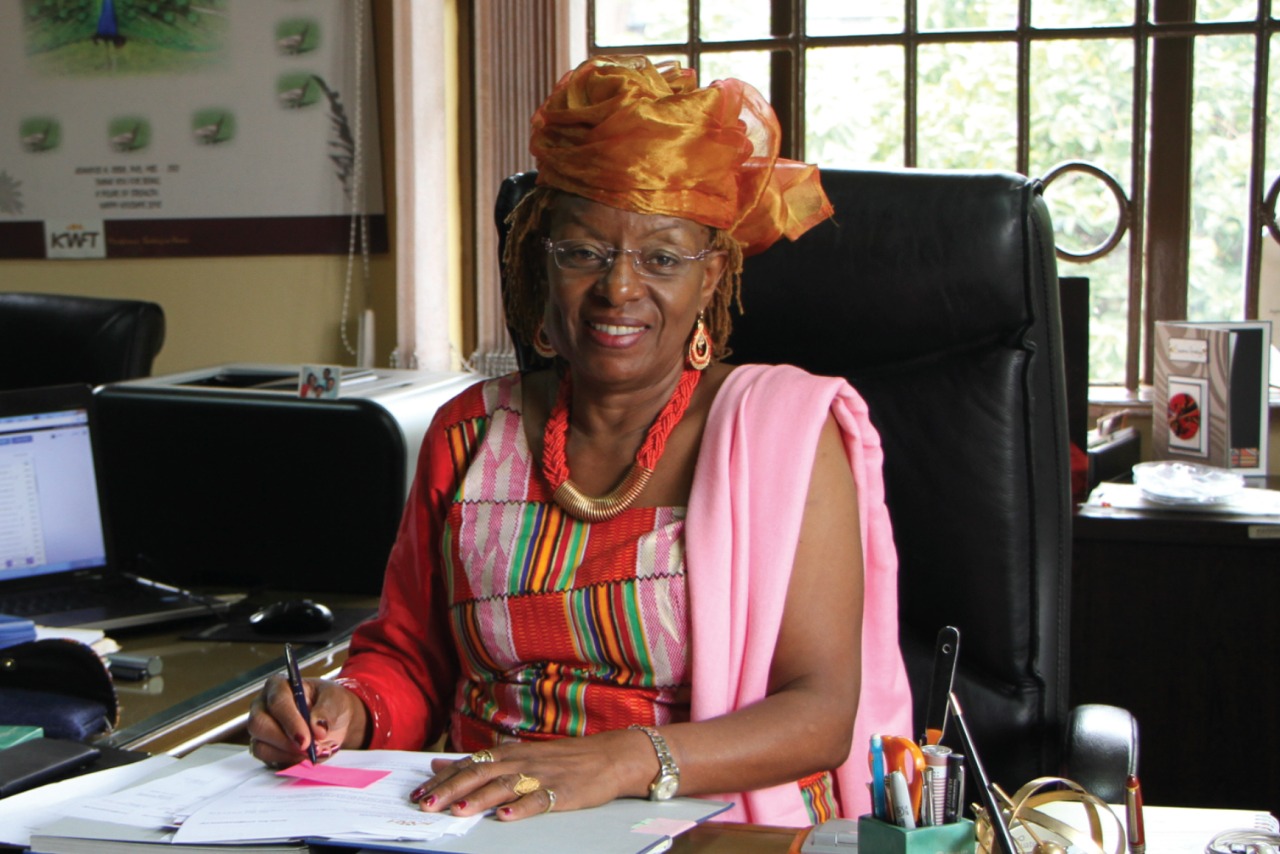Kenya Elections: "We have to continue creating awareness at the societal level too because these patriarchal traits, in the home, are diehard"
Date:

Dr Jennifer Riria has championed democracy and gender equality for over 40 years in Kenya. In the 1990’s she was instrumental in institutionalising micro-financing for women by establishing the Kenya Women’s Trust Fund (KWTF). She is currently the patron of Echo Network Africa – a women-led development institution – and she speaks to UN Women on civil society’s role in elections and promoting women’s leadership.
How important is civil society for fair and peaceful elections?
Civil society stands for civility and truthfulness. It provides a bridge between citizens and government. We can stand up when things may be swept under the carpet. The importance of non-state actors is not restricted to election time, its only that our activities are heightened. For now, it is important to make sure all actors come together not just as religious, ethnic or government institutions, but as institutions that share the same message of peace.
Before violence occurs, there are triggers. There will be utterances made, physical confrontations between individuals. Through the Women’s Mediation Network, we have trained observers in all counties, these individuals will then cascade this training to the wider community. They use their eyes and their pens to record any irregularities and/or possible tension and report directly to the officer in charge of the relevant polling station.
What are civil societies biggest challenges during elections?
During elections, civil society can still become partisan, tribal. It can sometimes look within rather than look outwards. More importantly there are some areas that we cannot reach. As part of our advocacy campaign, we have reached out to leading presidential candidates, for them to promote peace and women’s meaningful participation. We can train party officials and they can agree in the evening but by morning, a female candidate will no longer be on the list, it is not even discussed.
What are the fundamental barriers for women in politics?
Women's voices have been submerged for a long time. They're not heard, and therefore not seen. It is about women being able to position themselves because the law has been very elusive. It is law in this country that you can't discriminate against a woman, and you will be asked “who stopped women from running?”
We developed training materials and a curriculum targeted for women, approved by government. It includes modules on fundraising and presenting yourself to the electorate. We trained 150 aspirants in 2021, and over 60 reached the ballot for this election. Men in this country have got all the resources - they can sell a cow or a piece of land to fund a campaign - but women can't, they rarely have access to capital. We set up the Democracy Trust Fund to encourage women to save. We doubled their interest rates before the election and those 100 members received funds right in time for the election. I am very proud of this.
Have you seen a shift in women’s empowerment?
I used to receive threats because I was giving loans to women in the 1990’s. Husbands would tell me not to speak to their wives, it was not easy. This attitude slowly changed. Now we see marriages and families destroyed because women want to stand in the election. We have to continue creating awareness at the societal level too because these patriarchal traits, in the home, are diehard.
Echo Network Africa has implemented a nationwide advocacy campaign which has trained female aspirants, provided financial support for campaigning, and lobbied key election stakeholders to prioritise participation and protection of women in elections. This work has been supported by UN Women in partnership with the governments of Canada, Finland and UNDP's Deepening Democracy project